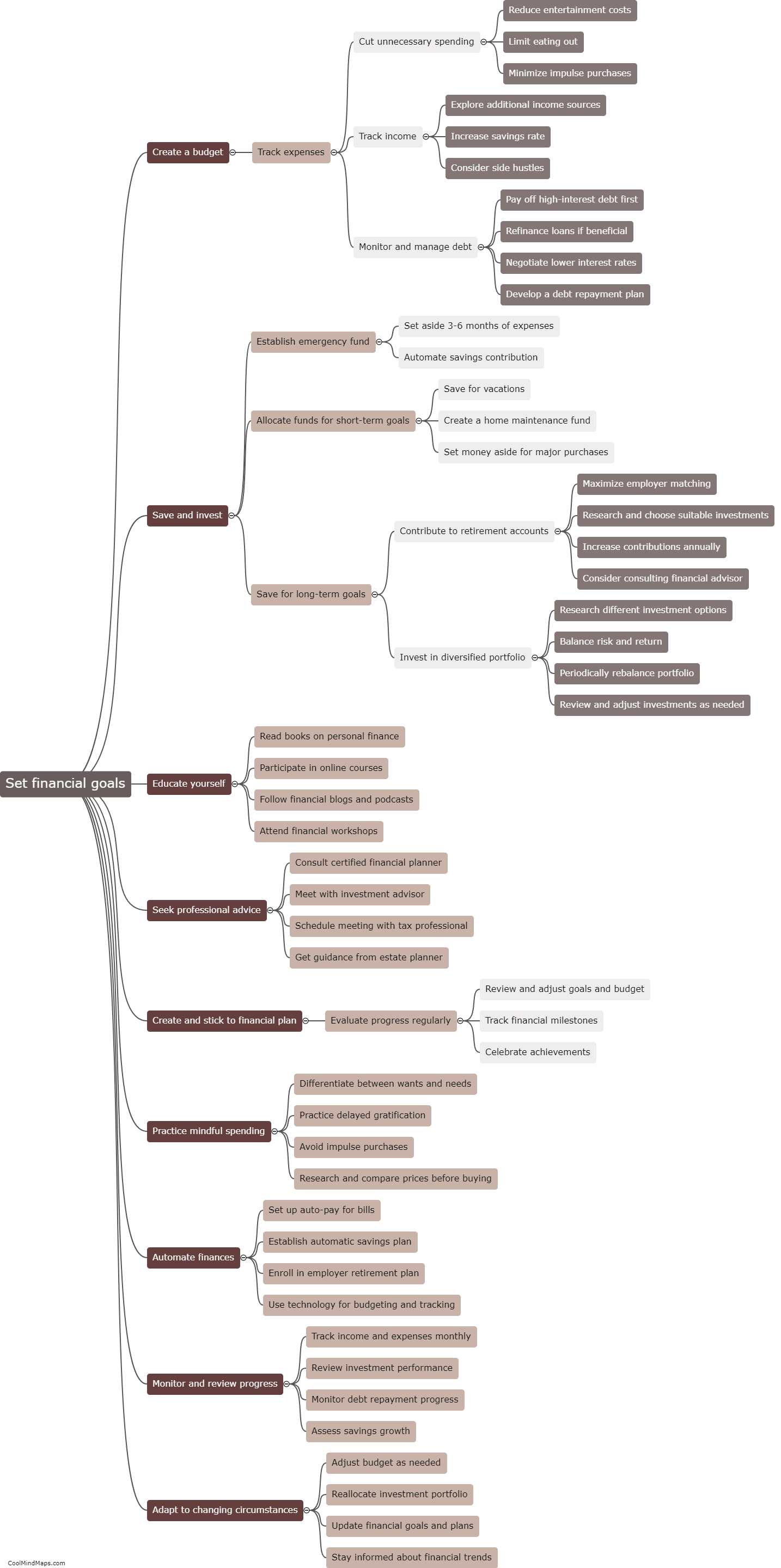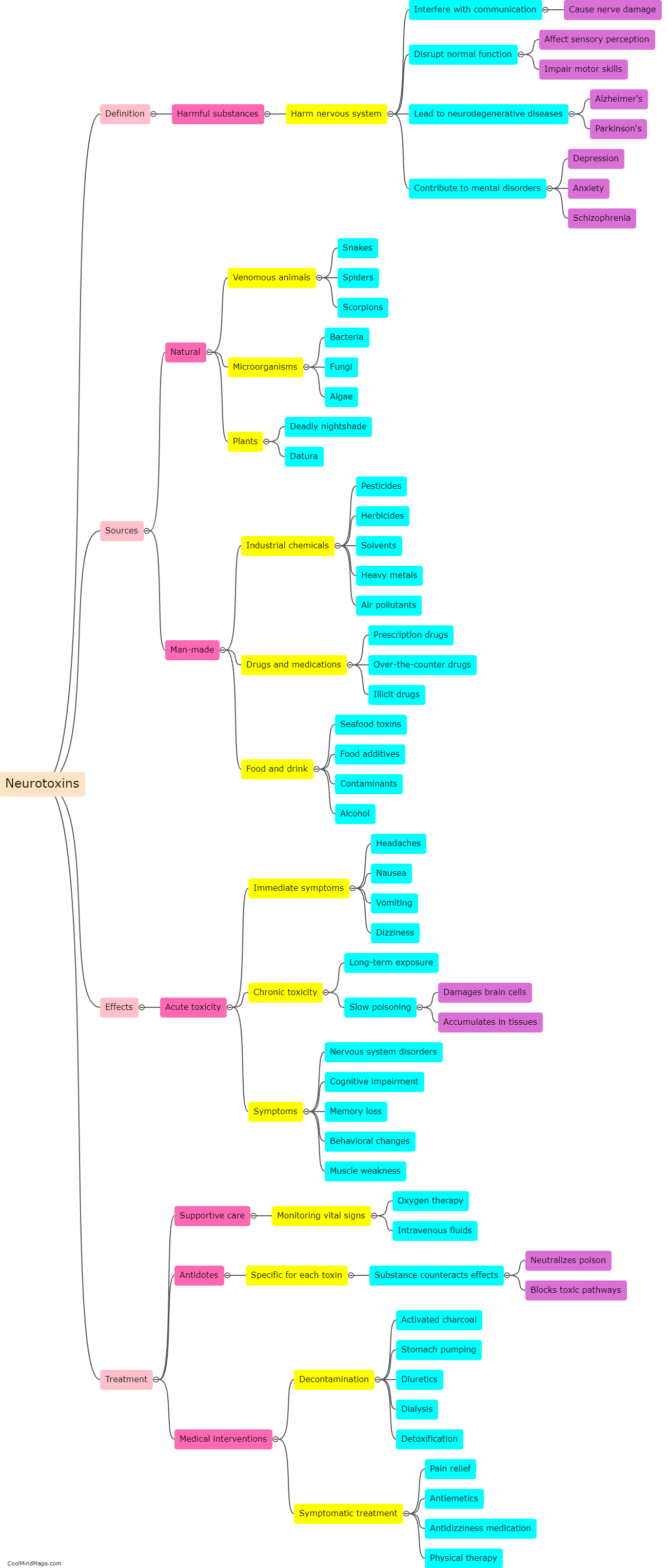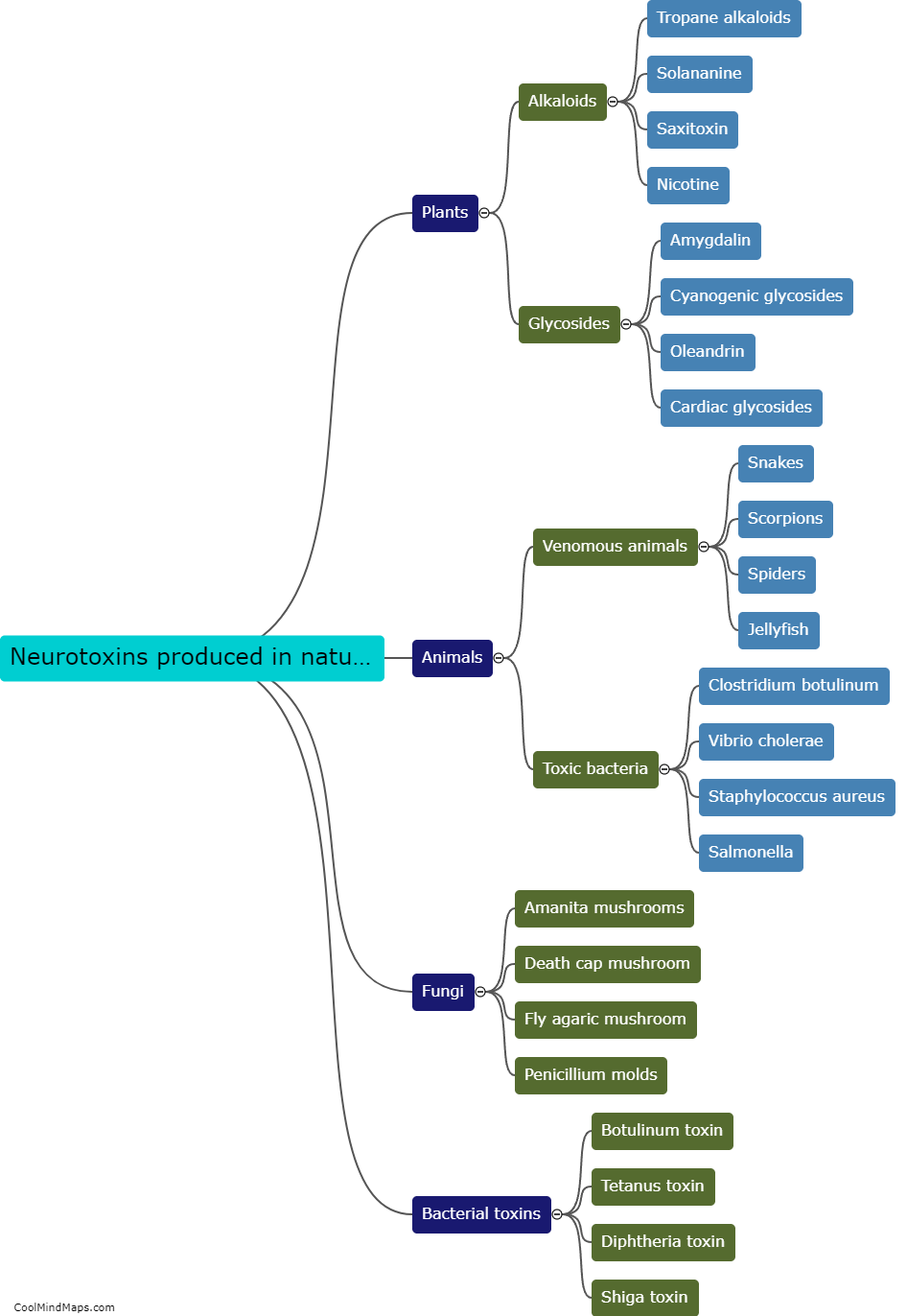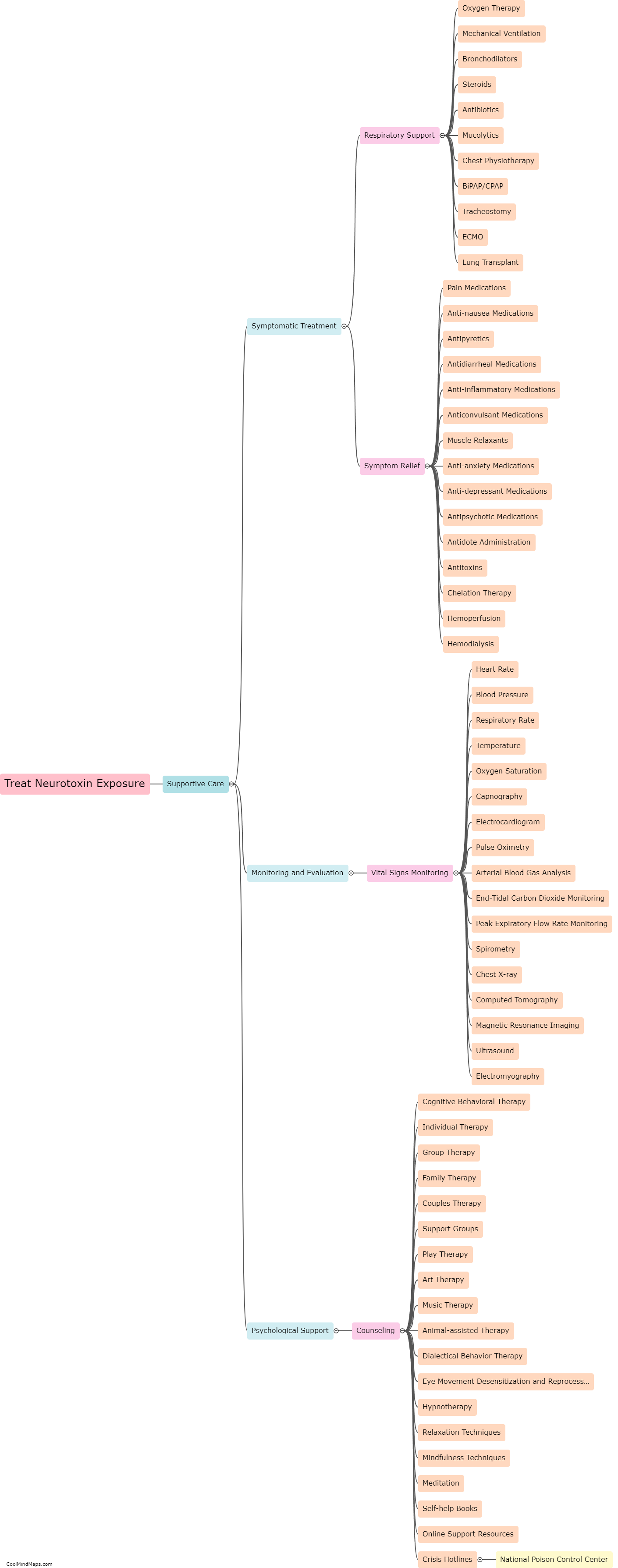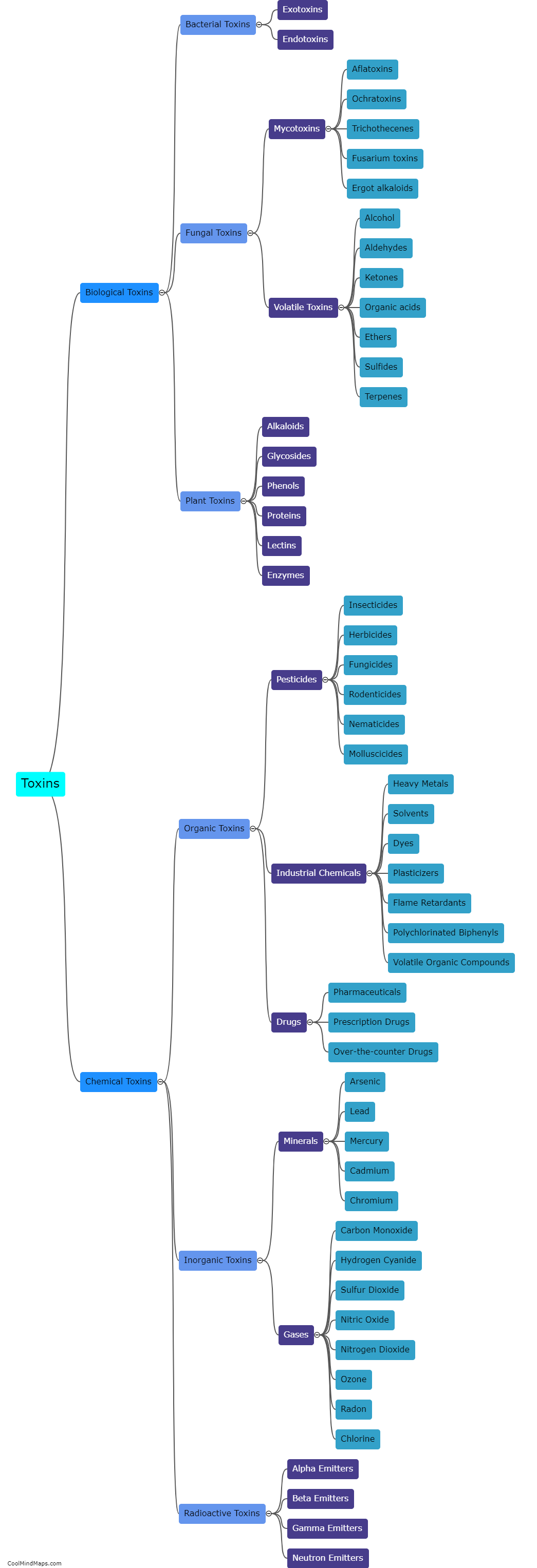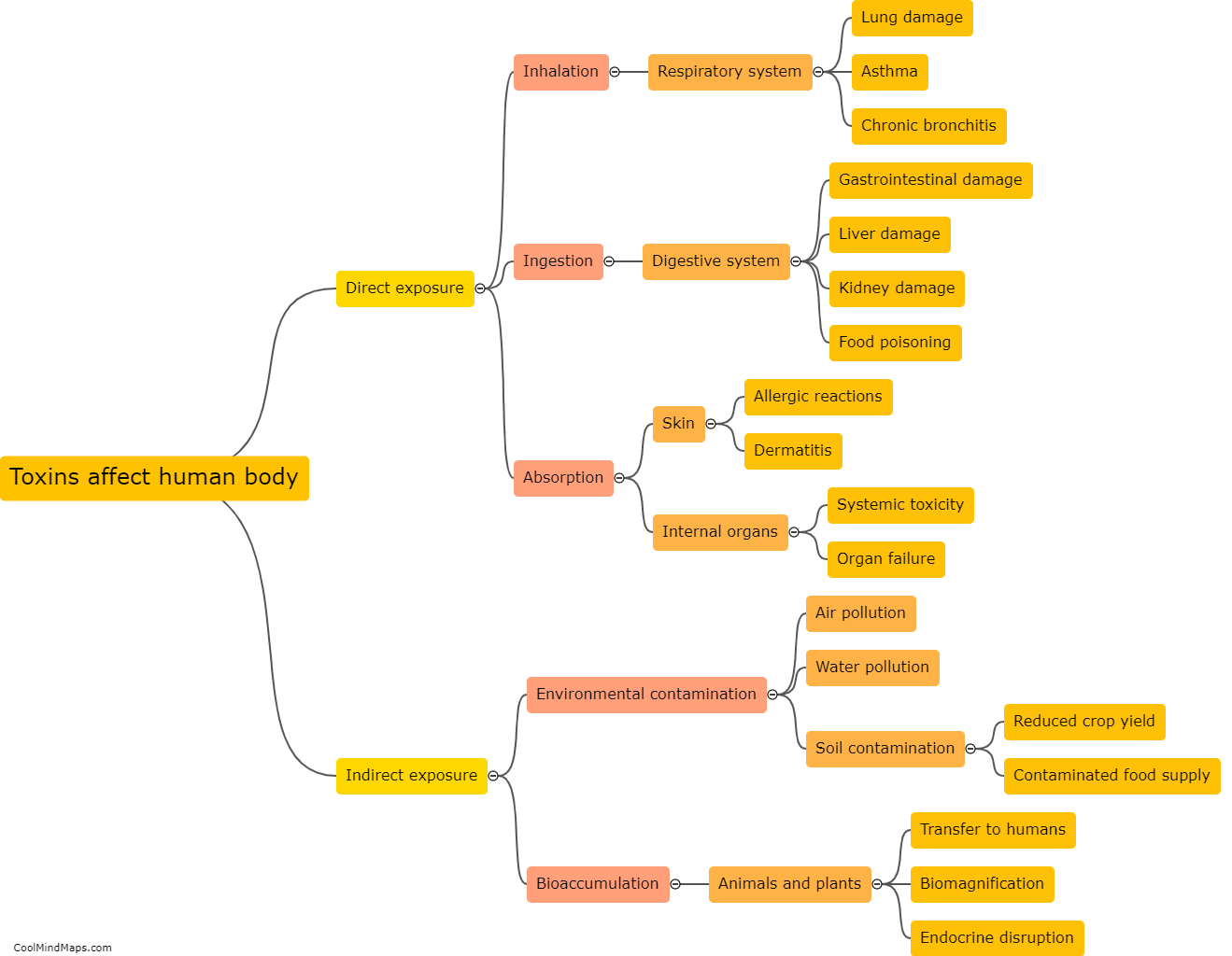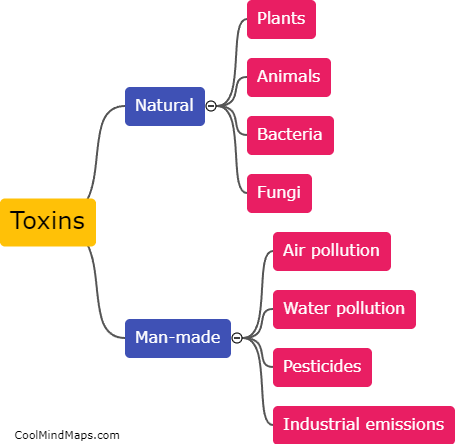What are the major types of toxins?
Toxins are harmful substances produced by living organisms, plants, animals, or bacteria, which can cause adverse effects on various biological systems. There are several major types of toxins, each with distinct properties and origins. These include chemical toxins, such as heavy metals, pesticides, and industrial pollutants, that can accumulate in the environment and be ingested or absorbed by humans and animals. Biological toxins, which are produced by bacteria, fungi, plants, or animals, can cause diseases and poisoning. Examples include venom from snakes, spiders, or scorpions, as well as toxins produced by bacteria like botulinum toxin. Additionally, toxins can be classified as endogenous or exogenous based on their origin. Endogenous toxins are produced within the body, such as metabolic waste products, while exogenous toxins are acquired from the external environment, like microbial toxins or pollutants. Understanding the different types of toxins is crucial in order to mitigate their effects and develop effective measures to counteract their toxicity.
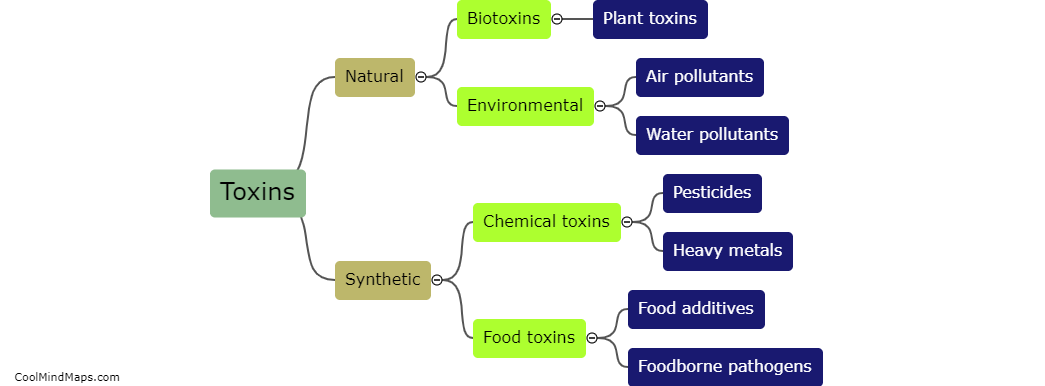
This mind map was published on 3 December 2023 and has been viewed 106 times.



